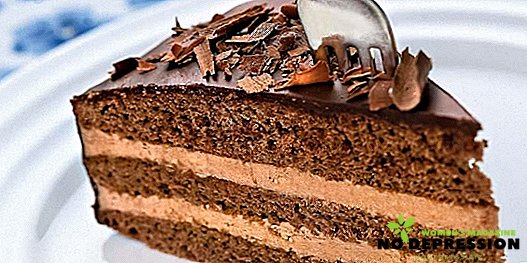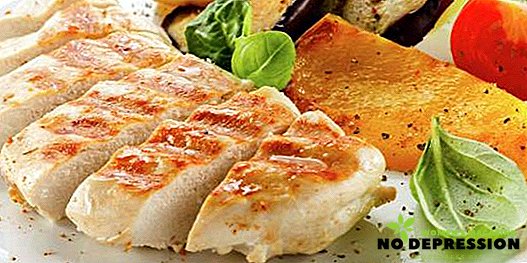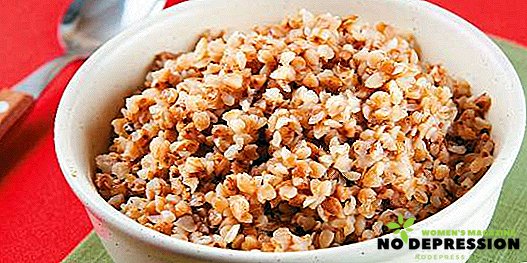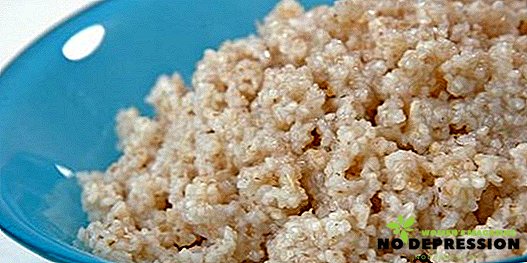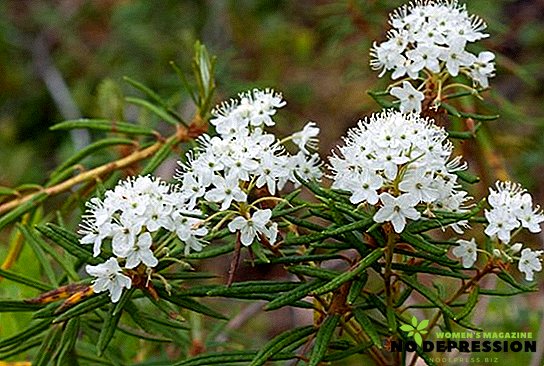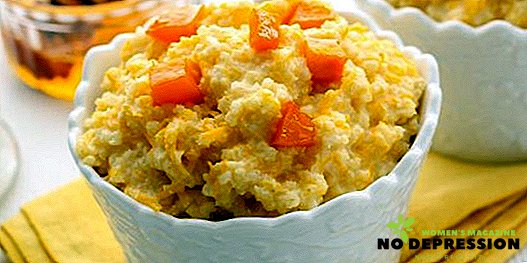Stinging nettle - perennial plant. For therapeutic purposes, all its parts are harvested: leaves, flowers, ripened seeds, rhizome. Gather the plant only in dry weather. Flowers and leaves to be plucked during flowering, and the rhizome - in autumn or spring, seeds - during their full ripening. Dry the leaves to quickly, laying in the shade. Wash and cut roots before drying.
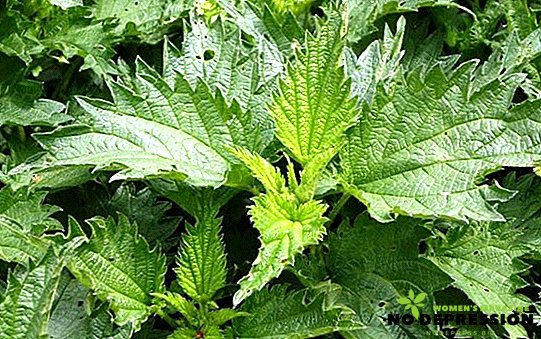
Why nettles are referred to medicinal plants
The effectiveness of therapeutic effects of dioecious nettle can be explained by the presence of ascorbic acid (vitamin C). This substance increases the body's resistance to infectious diseases, health and speeds up the metabolism.
In medicine, nettle is used as a hemostatic agent, mainly for uterine, hemorrhoidal bleeding, heavy and painful menstruation. This nettle effect is due to the presence of vitamin K, which is necessary for blood clotting.
Nettle is widely used in skin diseases (eczema, dermatitis), long-healing wounds, and thrush. The effectiveness of the plant is due to the presence in it of formic acid, tannins and proteins, pantothenic acid, histamine, vitamin B2, and chlorophyll.
What is useful nettle for the body

Outwardly, all nettle-based dosage forms are recommended for the treatment of ulcerative skin lesions, and inside they are prescribed for vitamin deficiency. The presence of vitamins and microelements, easily digestible protein, coarse fibers make nettle an excellent herbal medicine that normalizes the bowels, stomach and prevents constipation.
Perfectly helps liquid nettle extract in its pure form with problems with the kidneys, lungs and intestinal bleeding. Bring a lot of benefit medical collection with extract of yarrow. Preparations with nettle raise the level of hemoglobin and red blood cells in the blood, have a pronounced vasoconstrictor and tonic effect on the muscles of the uterus, increase blood clotting.
Healing properties and application of nettle
A large amount of vitamin C (ascorbic acid), carotene, phytoncides gives nettle excellent wound healing, bactericidal properties. In medical practice, the leaves are applied fresh when purulent wounds and fistulas.
In the treatment of anemia, drugs with nettle are not inferior to iron preparations. They perfectly raise the level of hemoglobin and red blood cells. There is evidence that nettle with leukopenia increases the number of leukocytes in the blood.
Chlorophyll, which is easily released from the leaves of the plant, can have a pronounced stimulating and tonic effect on the body. Once in the human body, it speeds up the metabolism, regenerates damaged skin, increases the tone of blood vessels, heart, intestines, uterus.
Decoction and nettle infusion is used in diseases of the stomach, constipation, vitamin deficiency. The plant is used for cosmetic purposes: with hair decoction and infusions, hair is washed, with the help of nettle juice they get rid of warts.
Nettle decoction
 At home, nettle broths are usually prepared in a water bath. Crushed leaves, flowers, seeds are placed in an enamel bowl, filled with clean water and sent to a water bath. Heat should be half an hour, while often the broth is stirred.
At home, nettle broths are usually prepared in a water bath. Crushed leaves, flowers, seeds are placed in an enamel bowl, filled with clean water and sent to a water bath. Heat should be half an hour, while often the broth is stirred.
Useful infusion
You can prepare it in two simple ways: pour cold water on it or heat it in a water bath. Using the second option, you need to put the right amount of medicinal raw materials in enamel or porcelain dishes, pour in warm water. Put the dishes in the water bath, stand for 15 minutes, stirring. Then cool, filter through gauze, and the infusion is ready for use. In the cold version of the preparation of the infusion, pour the prepared raw material with cooled boiled water (take the required amount), infuse for 4 to 12 hours, then filter and apply.
Delicious syrup
 Syrup can be bought at the pharmacy or prepared by yourself. When home made, add syrup with honey. Put honey in the prepared juice (200 grams) in a 1: 5 ratio. In low heat, bring to a boil. Cool at room temperature.
Syrup can be bought at the pharmacy or prepared by yourself. When home made, add syrup with honey. Put honey in the prepared juice (200 grams) in a 1: 5 ratio. In low heat, bring to a boil. Cool at room temperature.
You can cook it differently: skip the fresh leaves through a meat grinder, pour 750 ml of water per liter of juice, add 0.5 kg of granulated sugar, put on a low heat, wait for boiling. Disconnect and cool the syrup gradually. Store in a glass container on the shelf of the refrigerator.
Nettle syrup will bring many benefits for avitaminosis, effectively help with gynecological problems (infertility, uterine bleeding), hormonal imbalance, and also strengthen the female body after the birth of a child.
Unique juice
 The juice of nettle leaves is actively used for therapeutic purposes. Outwardly recommended for purulent skin diseases (lotions are applied to damaged areas or irrigated wounds), gum pathologies (rinsing), a cold (nose buried), cervical erosion (tampons moistened with juice).
The juice of nettle leaves is actively used for therapeutic purposes. Outwardly recommended for purulent skin diseases (lotions are applied to damaged areas or irrigated wounds), gum pathologies (rinsing), a cold (nose buried), cervical erosion (tampons moistened with juice).
To prepare the juice at home, you need to pick fresh leaves of the plant, rinse thoroughly with water, then skip through a juicer, if not, chop the leaf finely, then place it in gauze and squeeze.
Traditional medical recipes with nettle
In case of anemia, gastrointestinal diseases, fees are used, net products are used in pure form for bleeding, skin diseases, hair loss, colds and joint pains.
For any bleeding:
- Dry leaves (tablespoon) pour 250 ml of boiling water, cook for 10 minutes on low heat, cool, strain through gauze. Drink a decoction of 15 ml to 5 times a day.
- Crushed leaves (2 tablespoons) pour boiling water (250 ml), soak for 60 minutes, strain through gauze. Take 2 times a day for ½ cup.
- Freshly squeezed nettle juice diluted with water (three times a teaspoon of juice in 60 ml of water). Drink before meals.
- Dry crushed leaves (2 tablespoons) brew 250 ml of boiling water, insist under the lid for 1 hour, strain thoroughly. Take an infusion of 1/2 cup 2 times a day.

For respiratory diseases:
- Dry nettle flowers (1 pinch) brew boiling water (1 liter), drink like tea. The tool promotes sputum discharge.
- In the sugar syrup, boil the dried roots of the plant for half an hour, strain it thoroughly. Take with bronchitis 15 ml up to 6 times a day.
- Flowers plants (one teaspoon), pour boiling water (500 ml), soak the infusion under the lid for half an hour, then carefully filter. Drink with respiratory diseases as ordinary tea.

With dermatitis, urticaria, hair loss, eczema:
- Dry, ground leaves (a tablespoon) to brew with boiling water (200-250 ml), to insist and drink with dermatitis, eczema like ordinary herbal tea.
- 3 tablespoons of chopped dry raw materials (leaves) brew with boiling water (500 ml), cook at low boiling for 15 minutes, hold the broth for 40 minutes, then strain, well suited for rinsing hair, skin.
- Dried leaves (a tablespoon) pour boiling water (250 ml), soak the infusion under the lid for 1.5 hours, then filter through gauze. Use the infusion once a week, rubbing after washing into the scalp.
For back and joint pain:
- Freshly harvested leaves (a tablespoon) brew 250 ml of boiling water, cook the broth for 3 minutes, take 3 times a day with the leaves.
- Crushed dry nettle sheet (3 tablespoons) brew with boiling water (500 ml), leave for 15 minutes in the bath, then leave for 40 minutes under the lid. Take up to 4 times a day for ½ cup.
- Fresh nettle juice to rub into sore joints with rheumatism and arthrosis.
- Overlap the joints with a nettle broom in the bath, pre-scalding it with boiling water.
Known pharmaceutical preparations
 Nettle leaves and the whole plant is widely used in official medicine. In pharmacies, you can buy tincture with the addition of alcohol, leaves in briquettes or bags for one-time brewing, tablets with nettle extract.
Nettle leaves and the whole plant is widely used in official medicine. In pharmacies, you can buy tincture with the addition of alcohol, leaves in briquettes or bags for one-time brewing, tablets with nettle extract.
What can you buy at the pharmacy:
- Tincture of nettle leaves with the addition of 70% alcohol. It is recommended to take for the prevention of uterine bleeding (30-40 drops diluted in 60 ml of water half an hour before meals).
- Compressed briquettes from nettle leaves. It is enough just to fill them with water, hold for 10 minutes, then strain through cheesecloth.
- Bags for single tea leaves pour boiling water, use as regular tea.
- Allohol is the official drug that is manufactured by the pharmaceutical industry, containing nettle extract. The drug is recommended for use as a laxative or cholagogue.
Contraindications and possible harm
Before taking up the preparation of medicinal infusions, decoctions, you must consult with your doctor. Only a specialist can advise how to prepare and in what dosage to take herbal medicine based on nettle.
Special care is required when prescribing herbal preparations with nettle to people with kidney disease, especially in the presence of stones. Possible harm may occur with an overdose: reduced urine output, constipation.
It is important to know that nettle has contraindications for use during pregnancy (can lead to miscarriage), various bleeding caused by a tumor of the appendages or the uterus, increased blood clotting.
An excess of this vitamin can lead to the formation of blood clots. Therefore, drugs with this plant are contraindicated to the cores, hypertensive patients and all those who take blood thinning medications.


